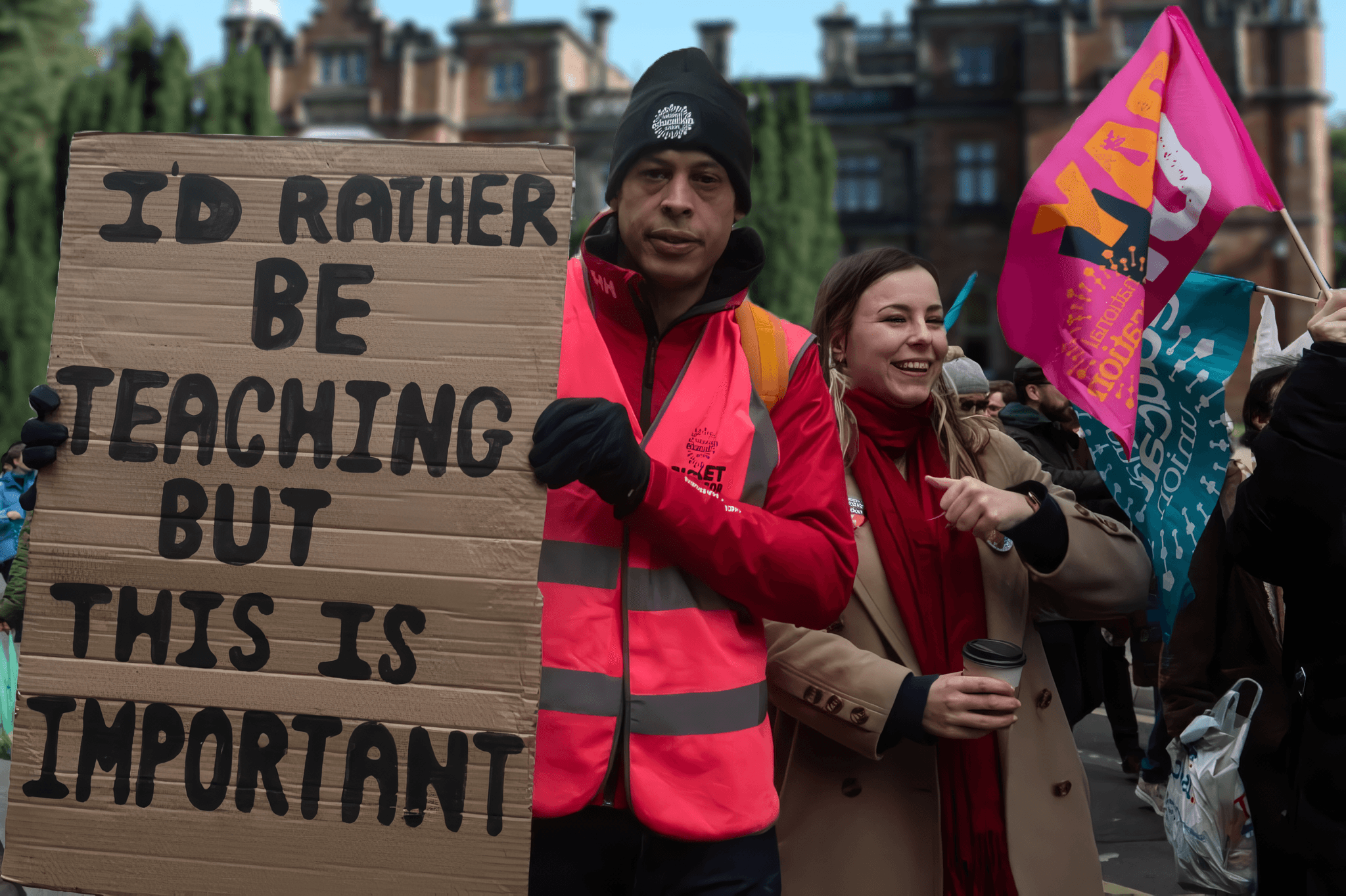“I think some of the worry around the financial picture is that if we are not given the full situation—if there isn’t a real understanding of what is making the finances unsustainable—then where is the guarantee that this isn’t going to continue?”
You may have noticed the posters around the Chancellor’s Building, the decline in Combined Honours offerings, or just a general drop in morale. These are only symptoms of what’s happening behind the scenes at Keele University: ongoing staff cuts, largely misunderstood by the staff affected, challenged by the UCU union, and seemingly hidden from students altogether.
What’s Going On?
Back in October, the Vice-Chancellor first expressed concerns about Keele’s financial position. Since then, there have been presentations and meetings aimed at explaining the proposed response—namely, reducing staff numbers. However, many teachers feel these justifications only make sense to those in upper management, the people least affected by the proposed cuts.
The UCU has analyzed the university’s finances and challenged the decisions being made. Academics report that the cuts are primarily targeting humanities and social sciences—an area many feel is core to Keele’s identity. January saw a brief “consultation” period where staff were invited to provide input, either independently or via the union. When the UCU requested that the consultation be extended, the Vice-Chancellor refused, insisting that enough information had already been shared.
According to the UCU and multiple faculty members, much of the important financial data was only released late in the process, and little meaningful engagement has been allowed.
“It was like they didn’t really want an alternative way out of this, they just wanted to get rid of staff.”
Cuts Without Clarity
One lecturer expressed frustration at how management decisions appear completely disconnected from the reality of teaching:
“They don’t seem to reflect what’s going on in the classroom, or have any sensible purpose.”
Students who learned of the situation called it “ridiculous.” The consultation period, according to many involved, felt “superficial,” with no real effort made to incorporate feedback. Others pointed out the irony that Keele has an entire business school filled with experts—yet they were never asked to propose alternative solutions.
“A lot of us would take a pay cut, yes—to be able to not have any compulsory redundancies. Ohh, so it’s easy to fire people, but it’s not easy to make your high-earning managers take a pay cut.”
Flawed Criteria
A point of concern is the criteria being used to determine which staff will be let go. Academics revealed that staff are being judged heavily on research output, even though:
-
Research officially accounts for only 20% of their workload
-
Staff were previously instructed to prioritise teaching over research
“For the last two or three years, we’ve been told to focus on teaching at the expense of research—and now they’re judging us based on research.”
There are also fears that those teachers with strong relationships with students—those who offer valuable support and mentorship—might be more at risk of being let go.
Impact on Combined Honours & Student Choice
Keele’s Combined Honours programme has long been a major selling point for the university. Students often cite the broad course offerings as a key reason for choosing Keele.
“The only reason I’m here is the opportunity to do Combined Honours and the wide range of options. I’m so pissed they’ve taken down most of them.”
Staff have been instructed to cut back on choice, which raises concerns that Keele is losing one of its most unique academic features.
“Students are feeling ignored, undervalued—like they’re just being used for the money.”
Why Are Students Being Kept in the Dark?
Perhaps most troubling: there has been no official communication to students about the cuts. Academics believe this is deliberate.
“The students aren’t being told anything because, of course, they’re not going to like it—especially if you’re told that each year, you might lose 20 staff members.”
The Human Cost
Many teachers already feel overburdened and short-staffed, and are worried the situation will worsen significantly if cuts go ahead.
“We’re already covering for people outside our areas of expertise, which is alarming.”
“It’s going to put a huge strain on whoever’s left behind.”
Staff also predict a decline in the quality of the student experience—fewer teaching hours, less academic mentoring, reduced choice, and fewer opportunities for research collaboration and volunteering.
“When there’s less staff, there are fewer opportunities to do research. And when we don’t do research, we’re just teaching the same thing over and over again without updating it.”
A Final Thought
“Students wield a lot of power. Universities are being run as businesses now, and in that model, you are the customer. If you say, ‘we pay all this money, and what matters to us is the quality of our teaching—that should be protected,’ your voice has weight.”









